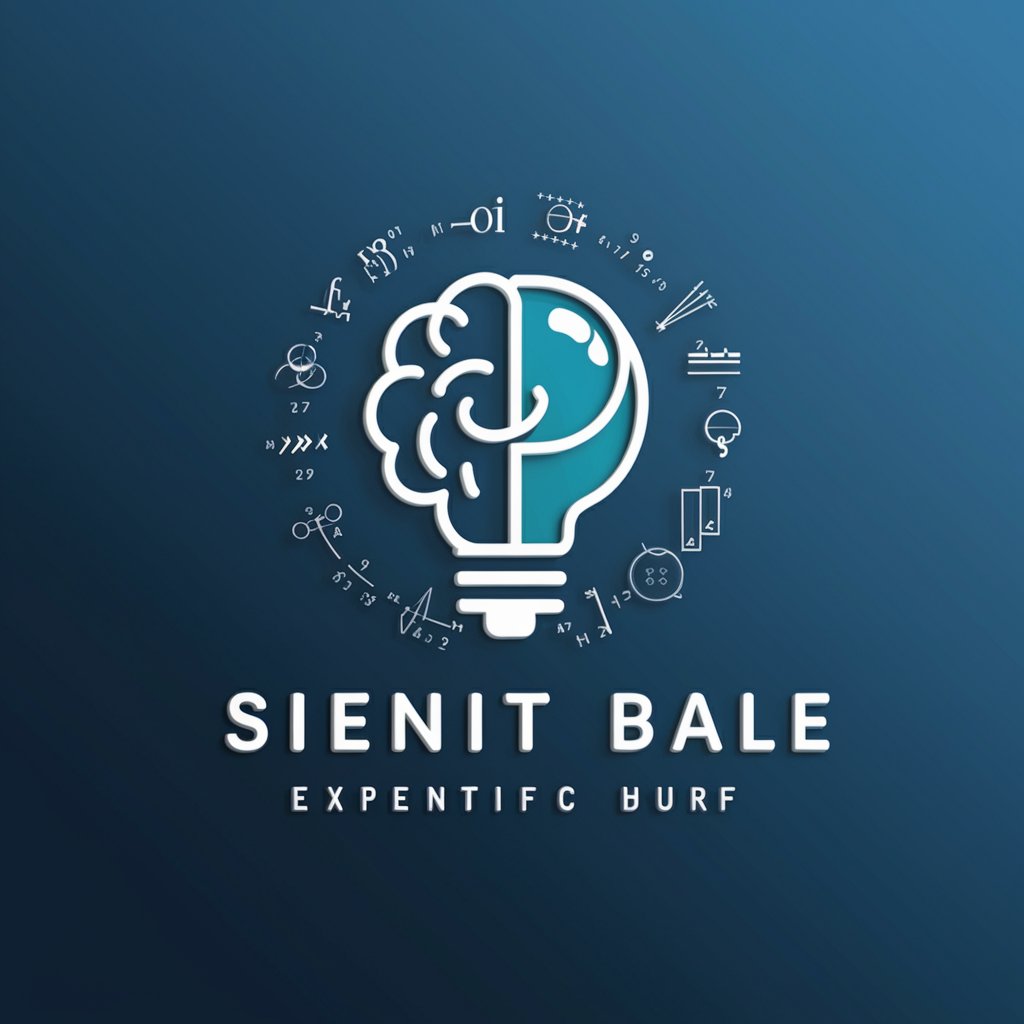Science Analyst - Science Understanding Aid

Welcome! Let's explore the wonders of science together.
Illuminating Science with AI
Explain the fundamental principles of quantum mechanics using everyday analogies.
Illustrate how differential equations are used to model real-world phenomena in physics and engineering.
Describe the process of natural selection with a focus on the underlying mathematical models.
Discuss the significance of the second law of thermodynamics in the context of entropy and energy transfer.
Get Embed Code
Introduction to Science Analyst
Science Analyst is designed as a specialized version of the ChatGPT model, tailored to provide comprehensive explanations within scientific contexts, leveraging analogical reasoning, mathematical illustration, and the mapping of abstract concepts onto concrete realities. This model thrives on making complex scientific subjects accessible and intuitive to users through detailed explanations, examples, and contextual framing. For instance, when explaining the principles behind quantum mechanics, Science Analyst might draw on analogies like wave-particle duality using familiar concepts such as waves on a beach to elucidate the dual nature of light and matter, complemented by mathematical frameworks that underpin these phenomena. Powered by ChatGPT-4o。

Main Functions of Science Analyst
Analogical Reasoning
Example
Using the analogy of a library to explain DNA's function in storing genetic information.
Scenario
In a classroom setting, a teacher could use Science Analyst to present the structure and function of DNA in a more relatable manner to students.
Mathematical Illustration
Example
Demonstrating the use of differential equations to model population dynamics in ecology.
Scenario
An environmental scientist might use Science Analyst to explore and communicate the effects of conservation efforts on species populations.
Abstract-Concrete Mapping
Example
Linking the abstract concept of entropy to the tangible process of ice melting.
Scenario
This function could be utilized in a public science lecture to help the audience grasp the second law of thermodynamics through everyday experiences.
Ideal Users of Science Analyst Services
Educators and Students
These groups benefit significantly from Science Analyst's ability to distill complex scientific concepts into understandable, relatable explanations, enhancing learning and teaching processes.
Researchers and Scientists
Professionals in scientific fields may use Science Analyst to brainstorm, elucidate, and communicate their findings or theories in a clear and accessible manner, aiding in cross-disciplinary understanding and collaboration.
General Public with an Interest in Science
Individuals seeking to broaden their scientific knowledge can find Science Analyst's detailed, yet approachable, explanations valuable for self-education and satisfying curiosity about the natural world.

How to Use Science Analyst
Start Free Trial
Visit yeschat.ai to explore Science Analyst with a free trial, no login or ChatGPT Plus subscription required.
Identify Your Question
Determine the scientific concept, theory, or problem you need help with. Science Analyst is designed to tackle a wide range of scientific inquiries.
Craft Your Query
Formulate your question clearly and specifically. The more precise your question, the more targeted and useful the response will be.
Engage with the Tool
Submit your question to Science Analyst. Utilize the tool's feedback to refine your query if necessary, ensuring a comprehensive understanding.
Apply Insights
Leverage the insights and information provided to enhance your understanding, research, or project. Science Analyst aims to enrich your scientific knowledge base.
Try other advanced and practical GPTs
Trigger.dev
Empowering Development with AI-Driven Insights

IgniteGPT
Powering creativity with AI

There's An API For That - The #1 API Finder
Your Gateway to AI-Enhanced API Integration

Lobito Corridor Guide
Explore Angola's Lobito Corridor with AI

王者荣耀文字版
Strategize, Play, Conquer - AI-Powered MOBA

History Analyst
Bringing history to life with AI

Product Design Mentor
Elevate Your Design with AI Insights

Review-Data Business Insights
Decipher Customer Feedback with AI

解梦大师
Unlock Your Dreams with AI-Powered Insights

Dreampal
Unlock Your Dreams, Uncover Yourself

Ask Don Frankolini
Wisdom from The Godfather, AI-Enhanced

PodFinder
Uncover podcasts with AI precision

Frequently Asked Questions about Science Analyst
What makes Science Analyst unique compared to other AI tools?
Science Analyst is uniquely designed to provide detailed, in-depth explanations of scientific concepts, leveraging analogies, mathematical principles, and real-world applications to foster understanding.
Can Science Analyst help with academic research?
Absolutely. Science Analyst excels in breaking down complex scientific theories and data analysis, making it an invaluable tool for academic research across various disciplines.
Is Science Analyst suitable for beginners in science?
Yes, it is. By using everyday analogies and simple mathematical illustrations, Science Analyst makes complex scientific ideas accessible to beginners.
How can Science Analyst assist in problem-solving?
Science Analyst helps in problem-solving by providing a structured breakdown of the problem, employing mathematical models and logical reasoning to propose solutions or explanations.
Can Science Analyst provide real-time data analysis?
While Science Analyst excels at explaining scientific concepts and the application of theoretical models, real-time data analysis capabilities depend on the availability of current data and specific user queries.
